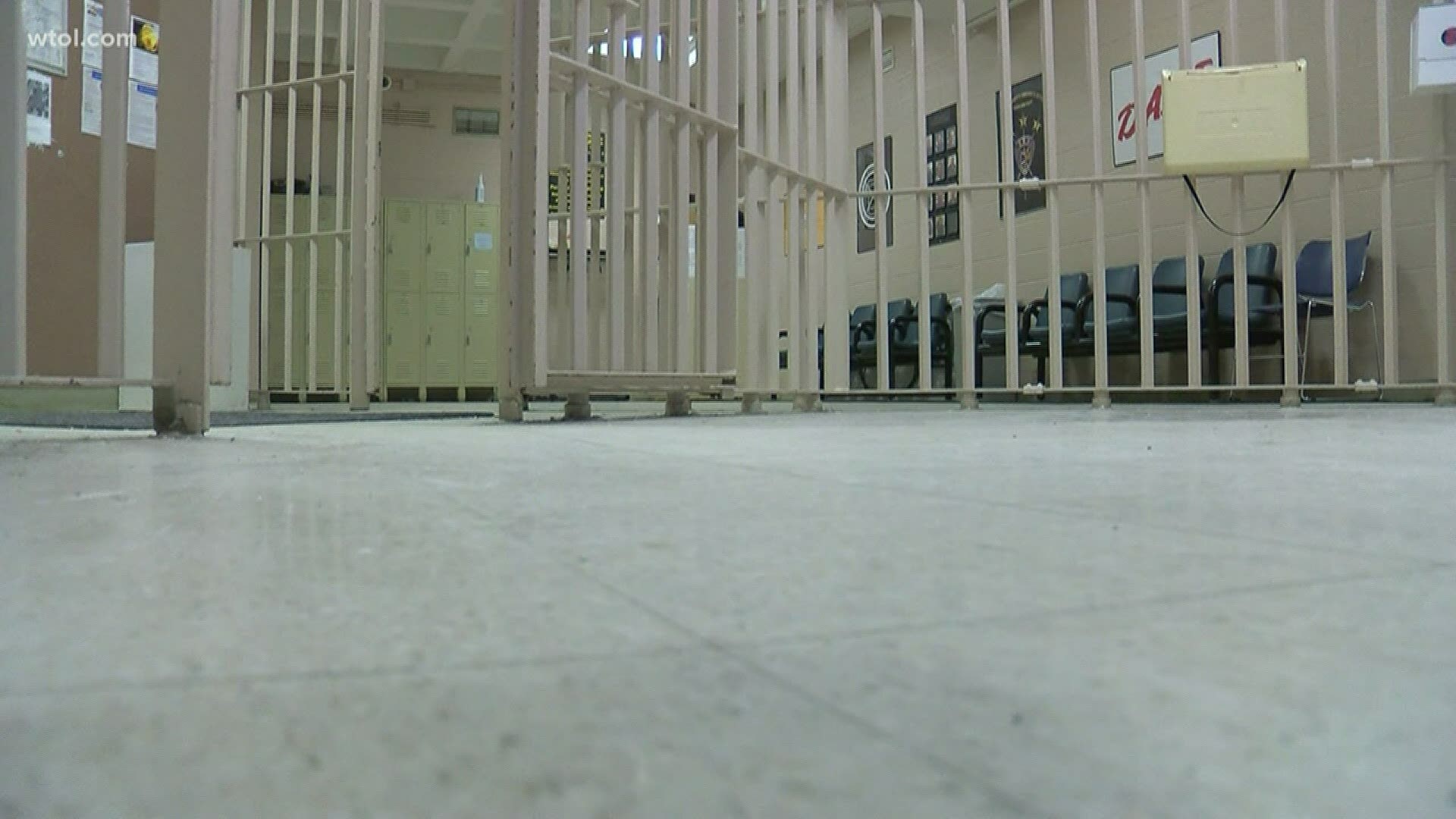TOLEDO, Ohio — Right now, jails and prisons are ripe for the spread of coronavirus which is why Gov. Mike DeWine is considering releasing more than 100 inmates early.
A Lucas County judge explained to WTOL 11 how the prisoner release process plays out.
On Tuesday, DeWine identified 167 inmates who he believes should be considered for emergency release. For a full inmate list, click here.
RELATED: FULL INMATE LISTS | State IDs names of inmates being considered for early release to coronavirus
"These individuals are already approaching the end of their sentence and releasing them slightly earlier than planned will create more social distancing for those who will be kept in custody," he said.
Lucas County Common Pleas Court Administrative Judge Dean Mandros said it's the parole board's call whether or not to grant parole, regardless of if there's an objection from the local court or prosecution.
"The parole board would also be required to give notification to the sentencing judge and the prosecution and the victim and allow their input, but ultimately it's up to the parole board to grant that type of release or not," Mandros said.
The inmates could still have conditions for their parole that the governor said he can add to as well.
"The parole board has their standard list of requirements that I'm sure would be applicable to anyone whose released to put on parole which can vary depending on the defendant and the nature of the charges he or she was convicted upon," Mandros said.
The parole board is prepared to start the meeting on Friday to address these cases.
Judge Mandros said that they haven't received any formal notification of any Lucas county cases but that could change by Friday.
Tom Noe Case
One of those cases in Lucas County is that of Thomas Noe, 65, who was a key figure in a Bureau of Worker’s Compensation skimming scandal. Noe was convicted in 2006 of skimming about $13.7 million from the $50 million rare-coin investment fund he managed for the state.
Before starting the state sentence, Noe served two years in federal prison for a 2005 conviction on illegal campaign contributions to President George W. Bush's re-election campaign.
Noe, along with his then-wife Bernadette Restivo-Noe, served as chairpersons of the Lucas County Republican Party. Noe was also chairman of the 2004 Bush-Cheney election campaign in northwest Ohio.
The parole board previously decided to not grant Noe parole several times. DeWine said on Tuesday that Noe falls under the category of qualifying because his crimes are not violent and that he had previously gone through a similar process.
If the prisoners are released, DeWine said the prisoners said they would be monitored and "we would not dump these individuals out."
DeWine said the following prisoners convicted of the following crimes will NOT be considered:
- sex offenses
- homicide-related offenses
- kidnapping
- abduction
- ethnic intimidation
- making terroristic threats
- domestic violence
Among the first group, those prisoners fitting one of these following conditions also will not be considered for release:
- Have been denied judicial release in the past.
- Have prior incarcerations in Ohio
- Are inter-state offenders
- Have warrants or detainers
- Those who have serious prison rule violations in the last 5 years.
The second group involves 26 prisoners who are older than 60 with chronic health conditions who fit certain criteria. They cannot fall under any of these categories:
- sex offenses,
- homicide-related offenses,
- kidnapping,
- abduction,
- ethnic intimidation,
- making terroristic threats, and
- domestic violence.
- Been denied judicial release in the past.
- Have had prior incarcerations in Ohio
- Are not inter-state offenders,
- Have warrants or detainers, and
- Those who have has serious prison rule violations in the last several years.
RELATED VIDEO:

